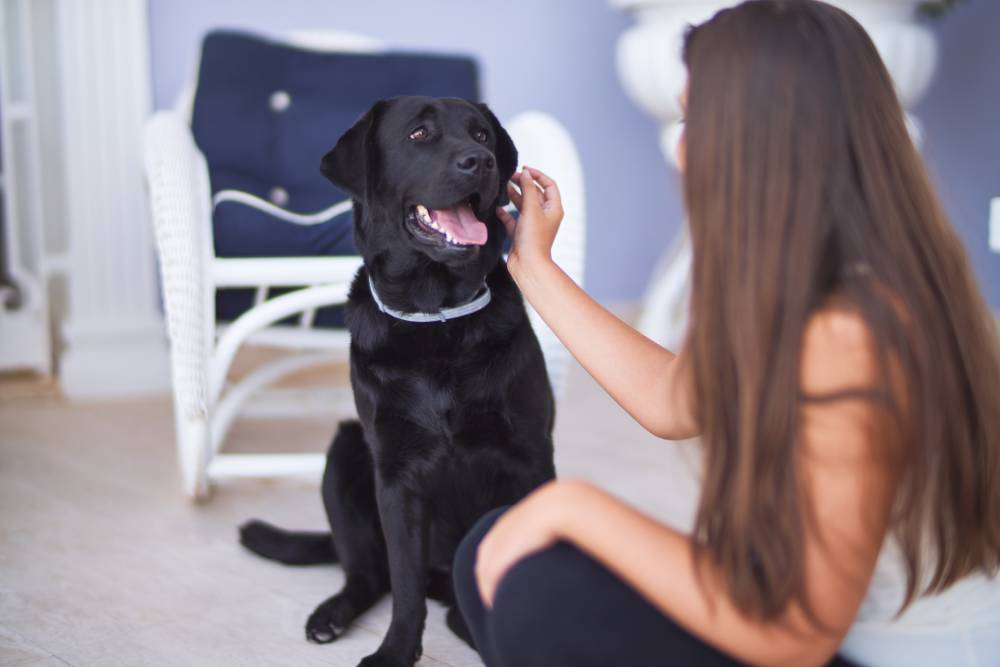Adopting a Rescue Dog: The 3-3-3 Rule
Amanda Guagliardo
Rescuing a new dog can be rewarding and bring joy to your entire family. Before you adopt shelter dogs, they say you should know the 3-3-3 rule. The 3-3-3 rule represents the phases of a rescue dog or common milestones your new dog or puppy will go through 3 days, 3 weeks, 3 months after being adopted from a shelter. Your new dog will have unfamiliar surroundings and go through an adjustment period while settling into his new home. Give your dog space and time to grow once you bring them home.
What is the 3-3-3 rule for new rescue dogs?
Every situation is different and every dog's experience will be unique. In most cases, however, it will take your dog some time to get adjusted to their new environment. Whether you rescue an older dog or a puppy, a lot of dogs tend to follow the 3-3-3 rule when getting acclimated:
- 3 days of feeling overwhelmed and nervous
- 3 weeks of settling in
- 3 months of building trust and bonding with you
Give your dog time to smell out its surroundings and find comfort in your new home. For a puppy, you may need to set up a daily puppy schedule and spend lots of time training him. If your dog is older, it may take more time to let him warm up, especially in the case of an adult dog who may have had several different homes in his lifetime. Here's what to expect during the three phases.
The First 3 Days
In the first three days of being at their new home, your pup is feeling overwhelmed and he will not be comfortable enough to completely be himself. Timid dogs may even take longer to warm up. Your newly adopted dog is sniffing out where he'll sleep, where he'll eat and where he'll feel loved. He is making sure his new surroundings are safe. Dog owners should know that this is completely normal. If you renamed your dog after adoption, make sure to use his name consistently.
Don't be alarmed if your pup doesn't want to eat for the first few days or whines/barks while he's adjusting. He may seek a comfortable, quiet, covered space to help him feel safe. Be sure to give him a quiet spot like a crate or a dog bed where he can feel secure. He is most likely scared and trying to figure out what's going on for the first few days. It's common for your puppy to have accidents in the house, so be patient, but also take them outside often and show them the proper place to go to the bathroom.
In these first few days, your dog will feel overstimulated and probably sleep a lot. He may feel separation anxiety from the shelter he left or even from his old pack mates. This anxiety could cause accidents or may even make him sick. Eventually, he'll get used to your home and he'll start to act more like himself.
After 3 Weeks
After about three weeks, your new shelter dog is probably finding himself in his new home. You should have him mostly potty trained and going to the bathroom outside, whether during a walk or on his own in a fenced-in yard. He now understands this is probably his forever home. He will likely start to play more, he should be on a feeding schedule and drinking as normal, he may also even start to show behavioral problems and this will also be a good time to set boundaries. Make sure you know the proper way to discipline your new pet.
Start your daily routine so your dog understands what life will be like with you. Be consistent in your training. Spend time playing with your dog but make sure he also gets rest, too. Many dogs will learn their limits in this time period and will understand what's expected of them. His true personality will really shine.
After the first few weeks, you can start to work on basic commands like sit and stay. Give your pup clear directions at all times. When they follow commands, reward them with dog treats and praise them.
After 3 Months
After three months, your dog definitely knows he's yours! He is comfortable with his home and has started to build true trust in you. He is likely set in his routine and is probably enjoying his new life with you. Your dog is probably falling in love with your family members as well. He will even probably be comfortable with your other dogs at this point.
Be sure not to ease off training during this time, as it's a critical time for learning good behaviors. Consider private training classes if that works better for your lifestyle. Your dog is still learning and willing to please. Try and teach your dog more elaborate tricks at this time. Get a good dog leash and train your dog to behave on a leash in public. Continuing to show him new things will only enhance your bond at this point. You can also try introducing your dog to other dogs, take him to the dog park, or let him play with a friend's dog. Your pup will enjoy playtime with another furry friend.
After three months your dog is probably showing you all the love in the world.








